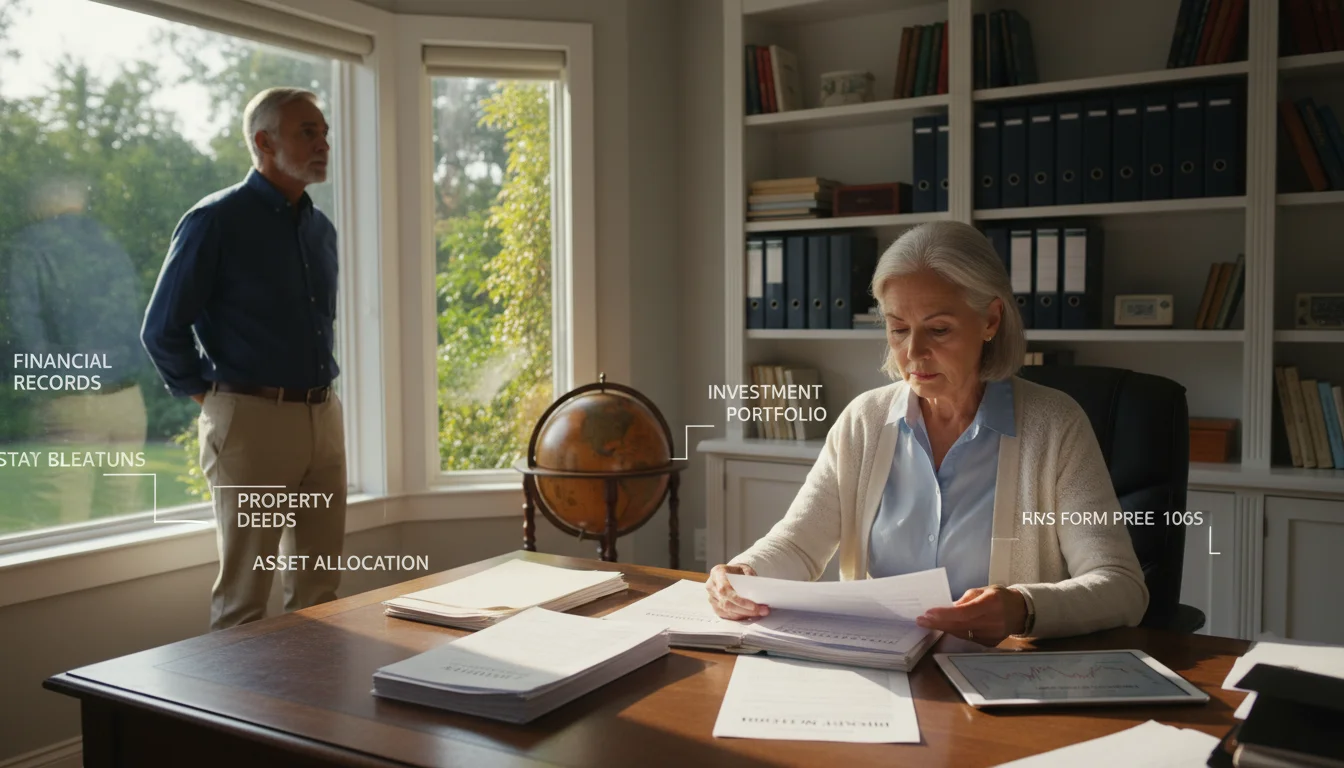

Introduction: Taking Control of Your Finances in Retirement
Navigating your financial life after you stop working can feel like sailing in uncharted waters. The regular paychecks have ended, and now you must rely on your savings, Social Security, and perhaps a pension to carry you through the coming decades. This transition brings a new set of questions: How much can I safely spend each year? How do I make my money last? Am I paying too much in taxes? How do I protect my nest egg from market downturns and scams?
For many, managing these complexities alone can be overwhelming. While you may have successfully saved for retirement, managing a lifetime of savings requires a different skill set. This is where professional help comes in. A financial planner can act as your co-pilot, helping you create a clear roadmap for your retirement years. However, the decision to hire one isn’t always straightforward. It involves costs, trust, and understanding what value a professional can truly provide.
This guide is designed to demystify the process. We will explore what a financial planner does, identify the specific situations where their expertise is most valuable for your senior finances, and give you the tools to decide if hiring one is the right step for securing your financial peace of mind.

Understanding the Financial Basics of Professional Advice
Before you can decide whether to hire a professional, it’s crucial to understand the language they use and the roles they play. The world of finance is filled with jargon, but a few key terms will empower you to make an informed choice.
What is a Financial Advisor or Financial Planner?
These terms are often used interchangeably, but they can mean different things. A “financial advisor” is a broad term for anyone who provides financial advice. A “financial planner,” particularly one who is a CERTIFIED FINANCIAL PLANNER™ (CFP®), typically offers a more holistic service. They don’t just recommend investments; they look at your entire financial picture—your income, expenses, insurance, taxes, estate plan, and long-term goals—to create a comprehensive strategy.
The Importance of the “Fiduciary” Standard
This is perhaps the most critical concept to grasp. A fiduciary is legally and ethically bound to act in your best interest at all times. They must put your financial well-being ahead of their own. Not all financial professionals are fiduciaries. Some operate under a “suitability” standard, which only requires that their recommendations be “suitable” for your situation, even if a better, lower-cost option exists. When seeking advice, always ask directly: “Are you a fiduciary?” The answer should be a clear and unqualified “yes.”
How Planners Get Paid
Understanding compensation is key to avoiding conflicts of interest.
- Fee-Only: These planners are paid directly by you and do not accept commissions or kickbacks for selling specific products. Payment might be an hourly rate (e.g., $200-$400 per hour), a flat fee for a specific project (e.g., $3,000 for a complete retirement plan), or a percentage of the assets they manage for you (AUM), typically around 1% annually. This model is widely considered the most transparent.
- Commission-Based: These advisors earn money from selling you financial products, like mutual funds or insurance policies. This can create a conflict of interest, as they may be incentivized to recommend products that pay them a higher commission rather than what is truly best for you.
- Fee-Based: This is a hybrid model. The advisor charges you a fee but may also earn commissions on certain products. It’s essential to get a clear breakdown of how they earn their money.
For most retirees seeking unbiased advice, a fee-only fiduciary is the gold standard for comprehensive wealth management.

Actionable Strategies: When a Financial Planner Makes Sense
The need for a financial planner isn’t about how much money you have; it’s about the complexity of your situation and your comfort level in managing it. Here are several key moments and situations where partnering with a professional can be a game-changer.

1. You Are Nearing Retirement (Within 5-10 Years)
The years leading up to retirement are critical. This is the time to shift your focus from accumulating wealth to creating a sustainable income stream. A planner can help you answer crucial questions:
- Have I saved enough? They can run projections to see if your nest egg aligns with your desired retirement lifestyle.
- How should I consolidate my accounts? You might have a 401(k) from your last job, an old 403(b), and a few IRAs. A planner can help you roll these over into a single, manageable account to simplify your life and potentially lower fees.
- When should I claim Social Security? Claiming at 62 versus 70 can mean a difference of tens of thousands of dollars over your lifetime. A planner can analyze your health, savings, and other income sources to help you optimize this decision. For official information, you can always visit SSA.gov.

2. You’ve Experienced a Major Life Event
Life is unpredictable. Events that are emotionally taxing often come with major financial implications. In these moments, an objective, expert voice is invaluable.
- Loss of a Spouse: A planner can help a surviving spouse navigate complex financial tasks like claiming survivor benefits, retitling assets, updating estate documents, and creating a new budget based on a single income.
- Receiving an Inheritance: A sudden windfall, whether from inheritance or selling a property, requires careful planning. A planner can help you create a strategy to invest the money, pay off debt, and minimize taxes, preventing you from making impulsive decisions.
- A Health Diagnosis: A serious health issue can bring unexpected costs. A professional can help you plan for potential long-term care expenses and ensure your medical needs don’t derail your entire financial plan.

3. You Need to Create a Sustainable Withdrawal Strategy
This is the central challenge of retirement: making your money last for an unknown number of years. A financial planner can design a withdrawal strategy that balances your need for income with the need for your portfolio to continue growing.
For example, you might have a $750,000 portfolio. A common rule of thumb is the “4% rule,” which suggests withdrawing 4% ($30,000) in the first year and adjusting for inflation thereafter. But this rule has limitations. A planner will use more sophisticated modeling to create a dynamic plan. They might suggest taking less from your portfolio in years when the market is down and more when it’s up, preserving your principal for the long haul.

4. Your Financial Situation is Complex
If your finances are more than just a Social Security check and a single savings account, you might benefit from expert oversight. Complexity can include:
- Multiple Income Streams: Juggling a pension, Social Security, rental income, and investment withdrawals.
- Tax Planning: Managing Required Minimum Distributions (RMDs) from your IRAs or 401(k)s, understanding how your Social Security benefits are taxed, and looking for opportunities like Roth conversions. You can find tax forms and publications directly from the IRS.
- Significant Assets: If you have a sizable nest egg, effective wealth management becomes crucial for preservation and growth.

5. You Want to Plan Your Legacy
Estate planning is about more than just having a will. It’s about ensuring your assets are passed on to your loved ones or charitable causes in the most efficient and tax-friendly way possible. A financial advisor can work alongside an estate planning attorney to help structure trusts, title accounts correctly, and minimize potential estate taxes, ensuring your wishes are carried out smoothly.

6. You Lack the Time, Interest, or Confidence
Let’s be honest: not everyone enjoys tracking markets, rebalancing portfolios, and reading tax code. And that’s perfectly okay. Your retirement years should be for enjoying life, not for stressing over spreadsheets. If you lack the confidence, time, or desire to manage your own finances, hiring a planner can be a sound investment in your own well-being. Delegating this responsibility to a trusted expert can free you up to focus on what truly matters to you.

Financial Red Flags and Scams to Watch Out For
While most financial professionals are ethical, the industry unfortunately attracts some bad actors who prey on seniors. Protecting your assets means being vigilant and recognizing warning signs. The FTC provides many resources on spotting and reporting fraud.

Red Flag 1: The “Guaranteed High Returns” Pitch
Warning Sign: An advisor promises you “guaranteed” or “risk-free” returns that sound too good to be true (e.g., 12% a year, every year).
The Reality: All legitimate investments carry some level of risk. There is no such thing as a high-return, no-risk investment. This is a classic tactic used in Ponzi schemes and other fraudulent investment scams. A trustworthy advisor will be transparent about the risks involved and will focus on creating a balanced portfolio that aligns with your risk tolerance, not on making impossible promises.

Red Flag 2: Pressure to Invest in Complex, High-Commission Products
Warning Sign: An advisor aggressively pushes a specific product, like a complex variable annuity or a non-traded Real Estate Investment Trust (REIT), without clearly explaining the high fees, long surrender periods, and risks.
The Reality: This is a common problem with advisors who are not fiduciaries. They may be recommending a product because it pays them a hefty commission, not because it’s the best option for your senior finances. A fiduciary planner will typically recommend low-cost, diversified index funds or ETFs and will always be able to explain exactly why a particular investment is right for your plan.

Red Flag 3: Lack of Transparency and Vague Answers
Warning Sign: When you ask how they get paid, they give you a confusing or evasive answer. They can’t or won’t provide their credentials in writing, or they discourage you from getting a second opinion.
The Reality: A reputable financial advisor will be proud of their credentials and completely transparent about their fees. They should be able to clearly state, “I am a fee-only fiduciary, and I charge 1% of the assets I manage for you.” Any hesitation or complexity in answering these basic questions is a major red flag. For more information on your rights as a consumer, visit the Consumer Financial Protection Bureau (CFPB).

A Financial Checklist for Hiring a Professional
If you’ve decided that hiring a planner is the right move, follow this simple process to find the right person for you.
First, clarify your needs and goals. Before you start looking, take some time to think about what you want help with. Are you concerned about running out of money? Do you need help with tax planning? Do you want to leave a legacy for your grandchildren? Having a clear idea of your goals will help you find an advisor with the right expertise.
Second, create a list of potential candidates. Ask for referrals from friends or family you trust. You can also use online databases from professional organizations like the National Association of Personal Financial Advisors (NAPFA) for fee-only planners or the CFP Board’s “Let’s Make a Plan” website to find a CERTIFIED FINANCIAL PLANNER™ professional near you.
Third, vet their credentials and background. Once you have a few names, do your homework. Use FINRA’s BrokerCheck and the SEC’s Investment Adviser Public Disclosure (IAPD) website to look up their employment history, licenses, and, most importantly, any disciplinary actions or complaints filed against them. Confirm they are a CFP® and a fiduciary.
Fourth, interview at least three planners. Most planners offer a free initial consultation. Treat this like a job interview—you are the one doing the hiring. Ask direct questions: How are you compensated? Are you a fiduciary? What is your investment philosophy? Who is your typical client? Find someone whose communication style and personality make you feel comfortable and respected.
Finally, review the agreement carefully. Before you sign anything or transfer any money, read the advisory agreement. Make sure you understand the scope of the services, the exact fees you will be paying, and the terms for ending the relationship. If anything is unclear, ask for it to be explained in plain English.

Frequently Asked Questions
1. How much does a financial planner cost?
Costs vary, but you can expect one of three models. An hourly rate typically runs from $200 to $400 per hour for specific consultations. A flat fee for creating a comprehensive financial plan might range from $2,000 to $7,500. The most common model for ongoing wealth management is a fee based on a percentage of assets under management (AUM), usually around 1% per year for portfolios under $1 million (the percentage often decreases as the portfolio size increases).
2. I don’t have millions of dollars. Can I still get financial advice?
Absolutely. You don’t need to be wealthy to benefit from financial planning. Many planners offer services for clients at all asset levels. Look for professionals who charge an hourly or flat-project fee. They can provide valuable advice on budgeting, Social Security, and creating a retirement plan without requiring you to have a large investment portfolio for them to manage.
3. What’s the difference between a financial planner and a stockbroker?
A CERTIFIED FINANCIAL PLANNER™ (CFP®) typically takes a holistic view of your entire financial life and, if they are a fiduciary, must act in your best interest. A stockbroker (also known as a registered representative) is primarily licensed to buy and sell securities. They historically operated under a “suitability” standard, meaning their recommendations only needed to be suitable, not necessarily the absolute best option for you.
4. How often should I meet with my financial planner?
For ongoing management, most people meet with their planner once or twice a year to review their portfolio, discuss any changes in their life, and make sure their plan is still on track. You should also reach out to them anytime you are considering a major financial decision or experience a significant life event.
5. What if I’m not happy with my current advisor?
You have the right to change advisors at any time. The relationship is built on trust, and if that trust is gone, it’s time to move on. The process is relatively simple. You will find a new advisor you are comfortable with, and they will handle the paperwork to have your accounts transferred from your old firm to their firm. You do not need to have a difficult conversation with your old advisor if you don’t want to; the new advisor’s firm will manage the transition.
For official information on Social Security and Medicare, visit SSA.gov and Medicare.gov. Federal tax information is at the IRS.
Disclaimer: This article is for informational purposes and is not a substitute for professional financial or tax advice. Consult with a certified financial planner or tax professional for guidance on your specific situation.
For expert guidance on senior health and finance, visit National Institutes of Health (NIH), Centers for Medicare & Medicaid Services (CMS) and Social Security Administration (SSA).
|
Fact-Checked Content
Our editorial team reviews all content for accuracy and updates it regularly. Learn about our editorial process →
|


















